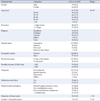Abstract
Purpose
This study was conducted to explore the mediating effect of self-efficacy in the relationship between internalized stigma and treatment adherence among community dwelling patient with mental illness.
Methods
A cross-sectional study design was employed. Participants were 145 people with mental illness who were enrolled at one of 11 community mental health institutions in Busan, South Korea. Internalized stigma of mental illness, self-efficacy, treatment adherence, and socio-demographic data were examined. Data were collected using self-report questionnaires and analyzed using Baron and Kenny method.
Results
Internalized stigma had a significant negative correlation with self-efficacy and treatment adherence. Self-efficacy had a significant positive correlation with treatment adherence. In addition, self-efficacy had a full mediating effect in the relationship between internalized stigma and treatment adherence.
Conclusion
The results suggest that self-efficacy plays an important role in promoting treatment adherence among patients with mental illness who have high levels of internalized stigma. Therefore, mental health professionals should focus on reducing internalized stigma and also enhancing self-efficacy to increase treatment adherence for persons with mental illness living in the community.
Figures and Tables
References
1. Cho MJ, Sung SJ, Shin SY, Kim JS, Cheon SB, Kim MJ, et al. Report No.11-1352000-000564-13. The epidemiological survey of mental disorders in Korea 2011. Ministry of Health and Welfare Academic Research Services Business Report. Seoul: Seoul National University College of Medicine;2011. 12.
2. Do BR, , Kim SN, Kim YS, Kim HK, Kim HM, Kim HS, et al. Psychiatric mental health nursing. 3rd ed. Seoul: Jeoung-dam media;2013. p. 437.
3. Kessler RC, Demler O, Frank RG, Olfson M, Pincus HA, Walters EE, et al. Prevalence and treatment of mental disorders, 1990 to 2003. N Engl J Med. 2005; 352(24):2515–2523. DOI: 10.1056/NEJMsa043266.

4. Alonso J, Codony M, Kovess V, Angermeyer MC, Katz SJ, Haro JM, et al. Population level of unmet need for mental healthcare in Europe. Br J Psychiatry. 2007; 190(4):299–306. DOI: 10.1192/bjp.bp.106.022004.

5. Nose M, Barbui C, Tansella M. How often do patients with psychosis fail to adhere to treatment programmes? A systematic review. Psychol Med. 2003; 33:1149–1160. DOI: 10.1017/S0033291703008328.

6. Lingam R, Scott J. Treatment non-adherence in affective disorders. Acta Psychiatr Scand. 2002; 105(3):164–172. DOI: 10.1034/j.1600-0447.2002.1r084.x.

7. Weiden PJ, Kozma C, Grogg A, Locklear J. Partial compliance and risk of rehospitalization among California medicaid patients with schizophrenia. Psychiatr Serv. 2004; 55(8):886–891.

8. Gonzalez-Pinto A, Mosquera F, Alonso M, López P, Ramírez F, Vieta E, et al. Suicidal risk in bipolar I disorder patients and adherence to long-term lithium treatment. Bipolar Disord. 2006; 8:618–624. DOI: 10.1111/j.1399-5618.2006.00368.x.

9. Corrigan PW. How stigma interferes with mental health care. Am Psychol. 2004; 59(7):614–625. DOI: 10.1037/0003-066X.59.7.614.

10. Livingston JD, Boyd JE. Correlates and consequences of internalized stigma for people living with mental illness: a systematic review and meta-analysis. Soc Sci Med. 2010; 71(12):2150–2161. DOI: 10.1016/j.socscimed.2010.09.030.

11. Fung KM, Tsang HW, Corrigan PW. Self-stigma of people with schizophrenia as predictor of their adherence to psychosocial treatment. Psychiatr Rehabil J. 2008; 32(2):95–104. DOI: 10.2975/32.2.2008.95.104.

12. Corrigan PW, Watson AC, Barr L. The self-stigma of mental illness: implications for self-esteem and self-efficacy. J Soc Clin Psychol. 2006; 25(9):875–884. DOI: 10.1521/jscp.2006.25.8.875.

13. Bandura A. The explanatory and predictive scope of self-efficacy theory. J Soc Clin Psychol. 1986; 4(3):359–373. DOI: 10.1521/jscp.1986.4.3.359.

14. Ritsher JB, Phelan JC. Internalized stigma predicts erosion of morale among psychiatric outpatients. Psychiatry Res. 2004; 129(3):257–265. DOI: 10.1016/j.psychres.2004.08.003.

15. Watson AC, Corrigan PW. The impact of stigma on service access and participation. A Guideline Developed for the Behavioral Health Recovery Management Project. Chicago: University of Chicago Center for Psychiatric Rehabilitation;2001. p. 31. http://www.bhrm.org/guidelines/stigma.pdf.
16. Kim MY, Jun SS. Factors affecting internalized stigma of patient with schizophrenia. J Korean Acad Psychiatr Ment Health Nurs. 2012; 21(2):108–117. DOI: 10.12934/jkpmhn.2012.21.2.108.

17. Cohen J. Quantitative methods in psychology. Psychol Bull. 1992; 112(1):155–159.
18. Ritsher JB, Otilingam PG, Grajales M. Internalized stigma of mental illness: psychometric properties of a new measure. Psychiatry Res. 2003; 121(1):31–49. DOI: 10.1016/j.psychres.2003.08.008.

19. Hwang TY, Lee WK, Han ES, Kwon EJ. A study on the reliability and validity of the Korean version of internalized stigma of mental illness scale (K-ISMI). J Korean Neuropsychiatr Assoc. 2006; 45(5):418–426.
20. Sherer M, Maddux JE, Mercandante B, Prentice-dunn S, Jacobs B, Rogers RW. The self-efficacy scale: construction and validation. Psychol Rep. 1982; 51(2):663–671. DOI: 10.2466/pr0.1982.51.2.663.

21. Hong HY. The relationship of perfectionism, self-efficacy and depression [master's thesis]. [Seoul]: Ewha Womans University;1995. 73.
22. Gillespie M, Smith J, Meaden A, Jones C, Wane J. Clients' engagement with assertive outreach services: a comparison of client and staff perceptions of engagement and its impact on later engagement. J Ment Health. 2004; 13(5):439–452. DOI: 10.1080/09638230400006767.

23. Baron RM, Kenny DA. The moderator-mediator variable distinction in social psychological research: conceptual, strategic, and statistical considerations. J Pers Soc Psychol. 1986; 51(6):1173–1182.

24. Kim WJ, Song YJ, Ryu HS, Ryu V, Kim JM, Ha RY, et al. Internalized stigma and its psychosocial correlates in Korean patients with serious mental illness. Psychiatry Res. 2015; 225(3):433–439. DOI: 10.1016/j.psychres.2014.11.071.

25. Hall M, Meaden A, Smith J, Jones C. The development and psychometric properties of an observer-rated measure of engagement with mental health services. J Ment Health. 2001; 10(4):457–465. DOI: 10.1080/09638230124439.

26. Park MS. The effect of vocational rehabilitation program for patients with schizophrenia-using self-efficacy and internal-external control [master's thesis]. [Daegu]: Daegu University;2003. 50.
27. Vauth R, Kleim B, Wirtz M, Corrigan PW. Self-efficacy and empowerment as outcomes of self-stigmatizing and coping in schizophrenia. Psychiatry Res. 2007; 150:71–80. DOI: 10.1016/j.psychres.2006.07.005.

28. Song HR. Relationship among attitude toward drug, medication adherence, and internalized stigma of psychiatric outpatients- focused on regional university hospitals [master's thesis]. [Seoul]: Kyung Hee University;2012. 73.
29. Park SI, Kim SA. Mediating effect of self-efficacy in the relationship between anger and functional health of homeless men. J Korean Acad Nurs. 2014; 44(4):361–370. DOI: 10.4040/jkan.2014.44.4.361.

30. Tsang HWH, Fung KMT, Corrigan PW. Psychosocial treatment compliance scale for people with psychotic disorders. Aust N Z J Psychiatry. 2006; 40:561–569. DOI: 10.1080/j.1440-1614.2006.01839.x.





 PDF
PDF ePub
ePub Citation
Citation Print
Print







 XML Download
XML Download